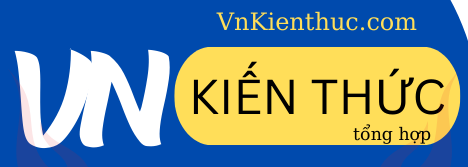Bút Nghiên Network
A Social Network Aims to Speed Up Progress in Science
This is the VOA Special English Education Report.
A few years ago, a university [A]researcher[/A] was having problems with an [A]experiment[/A] that involved medical imaging. His [A]adviser[/A] and his friends had no solutions. The researcher was Ijad Madisch at Harvard in Massachusetts.
IJAD MADISCH: "I was so frustrated. I said, you know, there has to be something online where I go, where people can, you know, present [A]themselves[/A] as a scientist, and where they put their information about their research and their [A]publications[/A] and you can search for it."
The solution was to start a scientific network to connect researchers and share [A]information[/A]. ResearchGate is similar to another social network [A]developed[/A] at Harvard -- Facebook. But Mr. Madisch says the [A]purpose [/A]of his site is to make scientists more productive.
IJAD MADISCH: "My goal: to win the Nobel Prize. And I really believe in that. Like, if we think that ResearchGate will [A]accelerate[/A] research in all the different fields, it will change the speed of science [A]significantly[/A] in the future. So i definitely do believe that ResearchGate could win the Nobel Prize for that one day."
Investors liked the idea, including a former Facebook executive and the same [A]investment[/A] group that put money into Twitter. So far, nine hundred thousand people have signed up as members of ResearchGate.
CAROLINE MOORE-KOCHLACS: "Logging in ... "
One of those users is Caroline Moore-Kochlacs at Boston University. Her [A]profile[/A] page shows her picture and her [A]specialty[/A] -- neuroscience. It also lists her doctoral adviser and the work she has published. She can follow other researchers and click onto group pages that [A]discuss[/A] different subjects.
CAROLINE MOORE-KOCHLACS: "Let's see what's going on in the [A]computational [/A]neuroscience group today."
She also uses Facebook but says people almost never [A]discuss[/A] science there. She says on ResearchGate she can ask questions and learn about what other researchers are working on before they publish their results. She can also learn about recently published [A]science[/A].
CAROLINE MOORE-KOCHLACS: "The scientific [A]literature[/A] is so huge at this point, that it's really impossible to get through everything in your [A]topic[/A] area. People really rely on hearing it from other people."
ResearchGate developer Ijad Madisch says he knows his site will only prove [A]valuable[/A] if scientists use it to help each other. But not every user is [A]pleased[/A] with it.
Kim Bertrand at the Harvard School of Public Health is an [A]epidemiologist[/A] -- someone who studies the spread and control of [A]diseases[/A]. Ms. Bertrand says she finds more value in her own offline network of researchers and advisers than in this online network.
KIM BERTRAND: "Sometimes I get these e-mails that are like: 'Dear Sirs: I'm writing a [A]dissertation[/A] on public health. Any suggestions? Please advise.' I don't need that."
A Social Network Aims to Speed Up Progress in Science
This is the VOA Special English Education Report.
A few years ago, a university [A]researcher[/A] was having problems with an [A]experiment[/A] that involved medical imaging. His [A]adviser[/A] and his friends had no solutions. The researcher was Ijad Madisch at Harvard in Massachusetts.
IJAD MADISCH: "I was so frustrated. I said, you know, there has to be something online where I go, where people can, you know, present [A]themselves[/A] as a scientist, and where they put their information about their research and their [A]publications[/A] and you can search for it."
The solution was to start a scientific network to connect researchers and share [A]information[/A]. ResearchGate is similar to another social network [A]developed[/A] at Harvard -- Facebook. But Mr. Madisch says the [A]purpose [/A]of his site is to make scientists more productive.
IJAD MADISCH: "My goal: to win the Nobel Prize. And I really believe in that. Like, if we think that ResearchGate will [A]accelerate[/A] research in all the different fields, it will change the speed of science [A]significantly[/A] in the future. So i definitely do believe that ResearchGate could win the Nobel Prize for that one day."
Investors liked the idea, including a former Facebook executive and the same [A]investment[/A] group that put money into Twitter. So far, nine hundred thousand people have signed up as members of ResearchGate.
CAROLINE MOORE-KOCHLACS: "Logging in ... "
One of those users is Caroline Moore-Kochlacs at Boston University. Her [A]profile[/A] page shows her picture and her [A]specialty[/A] -- neuroscience. It also lists her doctoral adviser and the work she has published. She can follow other researchers and click onto group pages that [A]discuss[/A] different subjects.
CAROLINE MOORE-KOCHLACS: "Let's see what's going on in the [A]computational [/A]neuroscience group today."
She also uses Facebook but says people almost never [A]discuss[/A] science there. She says on ResearchGate she can ask questions and learn about what other researchers are working on before they publish their results. She can also learn about recently published [A]science[/A].
CAROLINE MOORE-KOCHLACS: "The scientific [A]literature[/A] is so huge at this point, that it's really impossible to get through everything in your [A]topic[/A] area. People really rely on hearing it from other people."
ResearchGate developer Ijad Madisch says he knows his site will only prove [A]valuable[/A] if scientists use it to help each other. But not every user is [A]pleased[/A] with it.
Kim Bertrand at the Harvard School of Public Health is an [A]epidemiologist[/A] -- someone who studies the spread and control of [A]diseases[/A]. Ms. Bertrand says she finds more value in her own offline network of researchers and advisers than in this online network.
KIM BERTRAND: "Sometimes I get these e-mails that are like: 'Dear Sirs: I'm writing a [A]dissertation[/A] on public health. Any suggestions? Please advise.' I don't need that."
Sửa lần cuối bởi điều hành viên:
